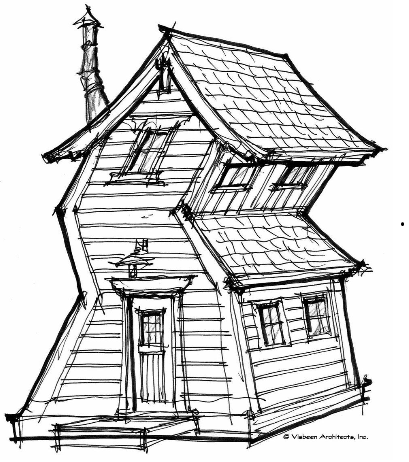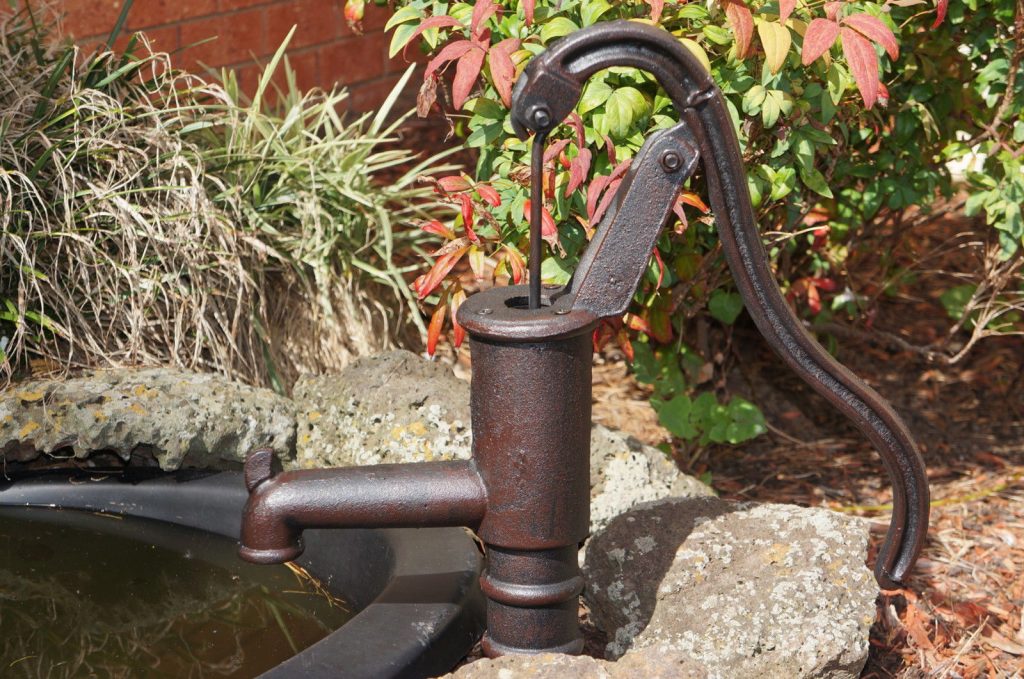As most of you know, we recently opened an office in MHK. We had the opportunity to talk a little about our new adventure! Check out the video below!
As most of you know, we recently opened an office in MHK. We had the opportunity to talk a little about our new adventure! Check out the video below!

Imagine you are considering purchasing a new home. You may not be the most construction-oriented person or know exactly what to look for when purchasing a home. Additionally, your financing may require that you have a home inspected prior to being qualified for funding. Lastly, you may just feel more comfortable having experts look at your potential purchase and point out potential problems before they become, well, your problems. After all, for most Americans the family home is the single largest investment they will make during their lives. The purpose of this post is to describe the inspection process and the common and important issues that often arise.
Prior to purchasing real estate, most buyers (the smart ones at least) will take a look at the real estate. Either they have the knowledge to identify defects in the improvements to the real estate or they hire a person to assist them. Another option is to inspect the real estate after a contract has been signed by the Seller and Buyer. It is important to note that if this is the intent of the parties, the contract must specifically give the Buyer the option to inspect the property and to request repairs of unacceptable conditions if they are found.
Prior to entering into the contract or after entering into the contract (whichever the case may be) and during the “inspection period”, inspections are made. At this point, a home inspector is hired and gains access to the home in order to perform the task. The inspector will look at a multitude of items to gather information regarding the condition of the home. This information will be compiled in a report that is provided to the buyer. The report will identify items of various concern and make recommendations for repair, when needed. Major items to be inspected consist of the foundation, walls, roof, mechanical systems, plumbing, electrical and the layout of the site.
Additionally, if a loan is being procured, a termite inspection will most likely be required. This is typically performed by a different company than the home inspection. A pest control technician will inspect the house for termite damage and active colonies and make recommendation for treatment, if needed.
Another inspection common to this region is radon testing. Radon gas is an odorless and harmful gas that seeps into homes and can cause health problems from prolonged exposure. For more information regarding radon issues when buying and selling your home, please refer to this link: https://www.epa.gov/sites/production/files/2015-05/documents/hmbuygud.pdf
After the inspections are made, a buyer should review the reports and determine whether there are issues of concern to the buyer. For example, if the roof requires replacement, is this in the buyer’s budget? Is it an unacceptable condition to the seller that will require replacement before moving into the home? Will the seller either replace the roof or pay a portion of the repair? Will your bank still finance the transaction if the roof is not replaced? Again, your real estate agent can assist you in navigating these concerns.
There are many licensed home inspectors, pest control technicians and radon testing and mitigating outfits in the Tallgrass Title service region. If you are unsure which inspector to hire, it is recommended to work with your realtor or banker to identify an inspector to assist you in your transaction. In any event, buyers should always educate themselves about the home they are purchasing and protect what may be their largest investment.

Leonardo Da Vinci is quoted as famously saying “Water is the driving force in nature.” The modern world of real estate is no exception. Real estate use will most always require that there is some access to water. Whether the property be a residential home or a cow pasture, the need for water is present. Part I of this post will focus where you obtain your tap and drinking water.
In residential real estate, there are three main sources of drinking water in this region of the country: Municipally supplied water utility, Rural Water District or owner owned and maintained well.
Municipally supplied water is just that. The City supplies water to its residents and charges a fee for the service. This is how a majority of homes are supplied with drinking water. However, where does the City obtain the water supplied? Typically, a City will own and maintain wells or obtain water from a reservoir or river and treat and supply the water. The water is then provided to residents through a City owned water system. Often, the water obtained from wells is pure enough that the City will not be required to treat the water. Reservoirs or rivers almost always require some form of treatment to the water before providing it to residents. Furthermore, to ensure the safety of the water supplied, the State of Kansas and the Federal government require periodic testing of public drinking water.
Rural Water Districts are “member-owned” cooperatives that are most often established to provide water to areas not served by a City. The “members” are basically the individuals that purchase water from the water district. The members maintain a board that oversees the water system and its sources of water. Water districts are also required to periodically test its water to maintain that it is pure and uncontaminated. In order to purchase water from a water district, one must first become a “member.” This usually involves a small transfer fee from the previous owner of the real estate. If you are establishing a new residence or other new water service, the fee requirement can be substantial. It is important to investigate this issue when planning a home building project.
The final, most common source of water is the private well. The owner has a water well that pumps water and provides it to the residence or farm. In Kansas, water windmills were once a part of most farm yards. Today, the work is done by electric pumps and pressure tanks in order to provide constant, consistent water to the owner. Owning your water source may sound liberating, but a private well comes with its own headaches. The owner of the well is wholly responsible for checking the quality of the water. Additionally, wells can go dry; especially in drought years. Lastly, the equipment required to pump and pressurize and possibly treat the water requires maintenance. It is important in a real estate transaction to investigate these issues prior to closing.
When purchasing or selling real estate, it is important to understand how water is obtained at the real estate. This will prevent unwanted surprises down the road.